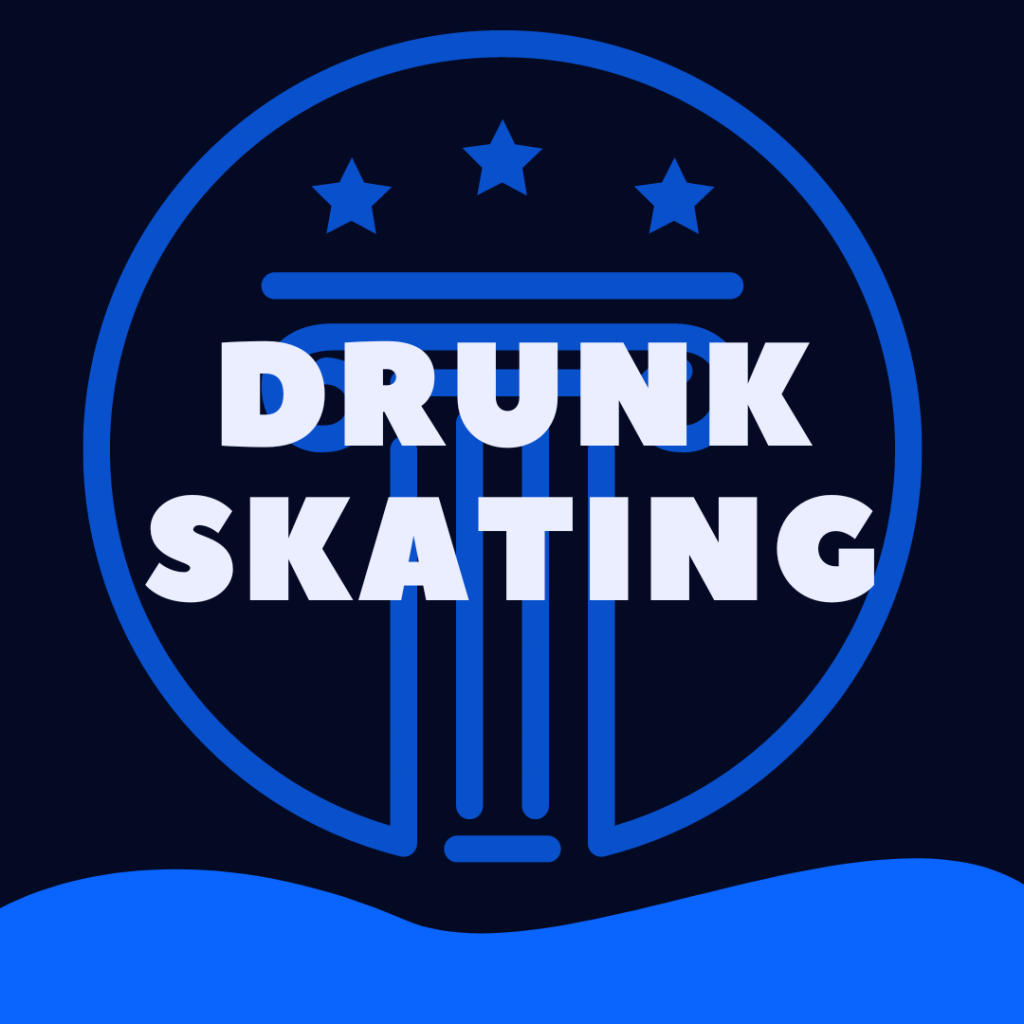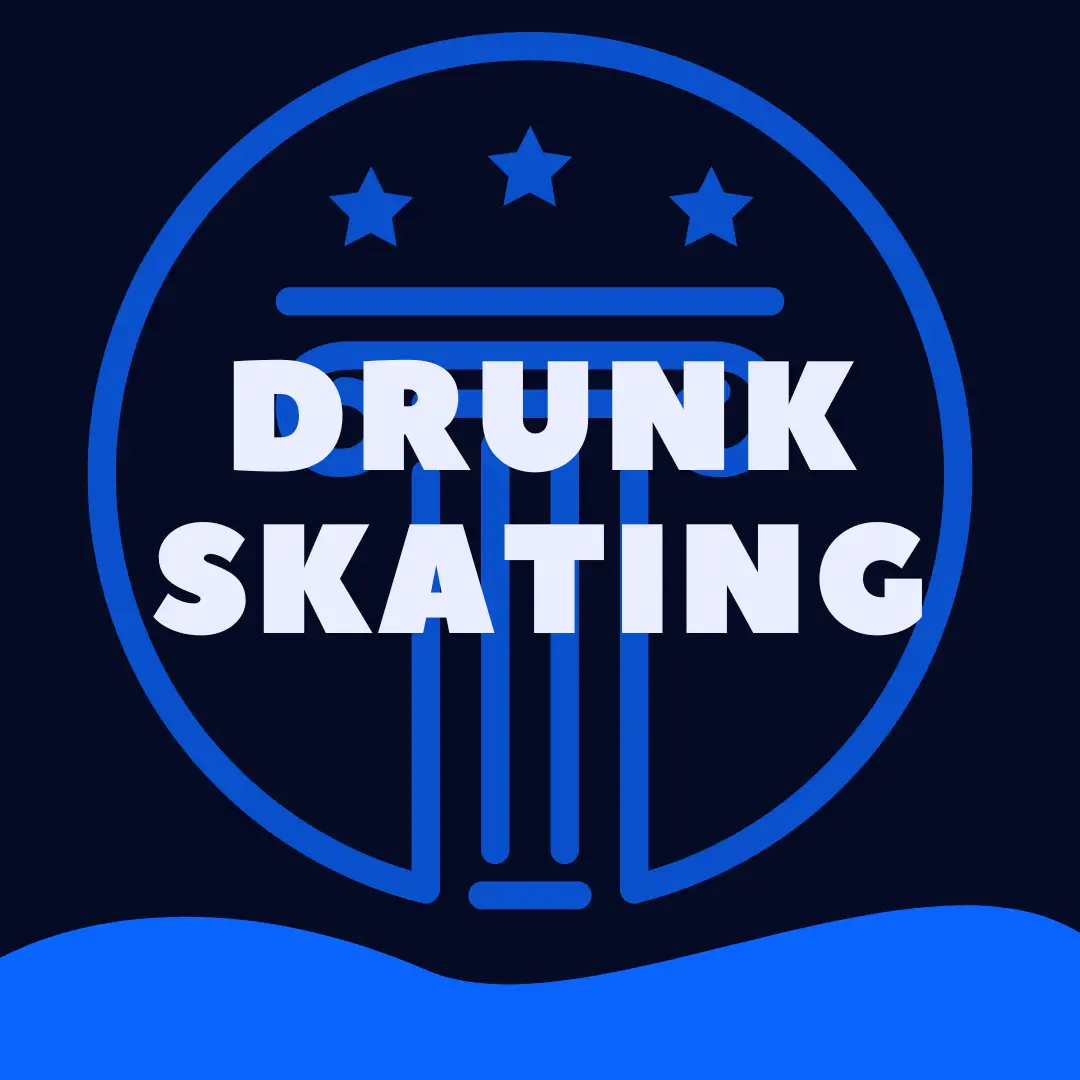Answer: Maybe. It depends on the circumstances and the state you are skateboarding in.
Read on to learn about the skateboarding rules in different jurisdictions and how you can avoid getting arrested.
Can You Get a DUI on a Skateboard? (United States)
Disclaimer
The contents of this web page are for informational purposes only, and nothing you read is intended to be legal advice. Please review our disclaimer about law/legal-related information on this website before taking action based upon anything you read or see.
Riding a skateboard when drunk can result in serious charges, including but not limited to DUI, criminal mischief, disorderly conduct, public intoxication, and more.
The charges will vary depending on the state rules, making it essential to understand the implications of drunk riding/driving in your region.
It may impact your life a lot since there are chances your driving license might get suspended even though you weren’t driving at car at the time of the citation.
Misdemeanor convictions can also disqualify you from certain types of employment or even educational programs.
Is Skateboarding Drunk Illegal? (No Motor)
Most states do not put skateboarding on par with bicycling or driving, as long as the board has no motor.
Instead, they consider skateboarders in the same category of pedestrians (California and Oregon, as examples).
The circumstances of the drunk riding might also come into play.
For example, if the skating was being done on the road in traffic (more like a vehicle), versus on a secluded sidewalk or in a skate park.
That being said, even though drunk skateboarding might not result in a DUI (or other traffic citations), a drunk skateboarder could also be criminally charged, just as a drunk pedestrian can be criminally charged.
In most states, it is against the law to consume alcoholic beverages in public, outside of the bounds of a licensed facility or a private residence.
It is also against the law to be visibly drunk in public in many states.
Reckless or out of control behavior that puts other people at risk can be charged as well, with ‘reckless endangering’ for example.
Thus, while skateboarding drunk might not be a DUI, it is not legal in any sense of the word.
Is Skateboarding Drunk Illegal? (Motor)
It is becoming more common to see skateboards with small motors.
These motors allow skateboarders to travel at higher speeds, at times equivalent to road traffic.
Most states would treat a motorized skateboard (even if it was being driven on a sidewalk) as a motorized vehicle, and thus the DUI statutes would apply.
What are the Consequences of a Skateboard DUI?
If an individual lives in a state where skateboarders can be charged with DUI, the consequences vary broadly.
In some states, a skateboarding DUI is treated the same as a driving DUI: criminal conviction, license suspension, jail time, probation, substance abuse counseling and treatment, victim impact panel, ignition interlock device, fines, and more.
In other states, there may not even be a license suspension.
Skateboarding Restriction
One of the consequences of getting a DUI on a skateboard may be restricting the rider from the activity for a specified amount of time.
Avoiding a Skateboarding DUI
First and foremost, don’t drink and skate.
Second, most people don’t realize this, but one of the main elements of a DUI in every state is that the driver was operating the device on a public road, sidewalk, parking lot, etc.
Another term might be “a premises open to the public.”
If the boarder is riding on private land, private drives, private roadways, private parking areas (that are not open to the public) with permission, then the government generally cannot prove all of the elements of a driving under the influence charge.
And frankly, if the rider is on private land with permission, the activity is unlikely to come to the attention of the police anyway.
If you’ve been charged with a skateboarding DUI, definitely confer with defense counsel about whether or not the location of the cited offense could be a defense.
What Are the General Skateboarding Rules and Regulations in the USA?
The United States has the largest population of skaters globally. According to Statista, there were 8.87 million skateboarders in 2020. The large population makes it essential to establish control by enforcing what can be done and what can’t.
Most skateboarding rules in the USA aim to promote the safety of the participants, other users of public space, and property owners. Although the laws differ between states, they all seek to achieve a common objective. These laws include;
- All skateboarders should wear the correct safety equipment when skating. These include helmets and knee pads, which help promote the skateboarder’s health and safety.
- All skateboarders must obey traffic laws. Some jurisdictions keep skateboarders off the road, while others have sidewalks and bicycle lanes to accommodate skateboarding.
- Skateboarders are also included in the laws concerning cyclists, pedestrians, and rollerbladers.
- There are other skateboard-specific laws like the time and location you should consider before hitting the road.
When and Where is Skateboarding Prohibited?
The laws imposed on skateboarding differ across states. Some states restrict skateboarding while others completely prohibit it. This section expounds on where you cannot skateboard.
Commercial properties or business districts are good examples of locations you cannot skateboard. It includes any premises designated for banks, businesses, office parks, or commerce-related industries. States insist on keeping skateboarding out of these locations since they do not contribute positively to closing million-dollar deals.
You cannot skateboard in the streets of cities like Canton, Ohio. Such states also define which times you can ride and at what speeds. These rules prove practical in major cities with busy roads where skateboarders are a safety risk. The state encourages skateboarders to consider quieter areas like semi-unused roads to try out their stunts.
In other states, there are designated skate parks for skateboarders to enjoy. Skate parks help reduce the number of skateboarders on the sidewalks along specific streets. Since skateboarding after dark is prohibited, you cannot enjoy scenic moon rides at night in cities like Akron, Ohio.
How you ride your skateboard also determines whether you are breaking the law or not. Most states find executing skateboarding tricks in public a safety concern. Commuting on the sidewalk is risky; how about trying to ollie over benches and grind rails? In states like Tennessee, skateboarders should maintain a single file when there is more than one.
Is the Landowner Liable if a Skateboarder Gets Injured?
The law protects the landowner if a skateboarder gets injured while skateboarding on public or private property.
However, states classify skateboarding liability in different categories. In some, skateboarding is a hazardous recreational activity, while others indemnify property owners by singling out and prohibiting skateboarding.
Why Should You Not Skateboard when Drunk
Property Vandalization
You are more likely to damage property when skateboarding drunk. In addition to property damage, you also become a menace to pedestrians and other road users.
Illegal drunk riding is why most sculptures, home gardens, and farmsteads get destroyed, so avoid skateboarding when drunk.
Physical Danger
You not only put your body at risk when skateboarding drunk but also all those involved in the accident. Individuals have been experiencing bone fractures and head injuries because of falling at high speeds when skating drunk.
It would be best to understand that there are still risks of getting wounded even when you take alcohol out of the picture.
The presence of alcohol in your system only multiplies the risk. It would help to wear the necessary safety gear as it will help save you from serious injuries.
If you are a professional skateboarder, you know that any foot mutilation will have you quit skateboarding.
Skateboarders rely heavily on their feet and cannot afford serious injuries. Skateboarding when drunk is almost as bad as skateboarding in the rain since you can easily slip and fall.
Traffic Rules
All road users must adhere to the existing traffic rules, including skateboarders. However, you’ll have a more challenging experience understanding, deciphering, and following traffic rules when drunk. Not following them exposes you to dangerous road accidents that may hurt you and others.
You are also likely to get a DUI on a skateboard by breaking traffic regulations. The reasons to avoid drunk skateboarding are endless.
Weird Skateboarding Laws You Should Know
- In New Jersey, all motorists must honk before they pass a skateboarder or other road users. Instead of protecting road users, this law tends to distract skateboarders and might contribute to more accidents.
- You cannot listen to the radio when skateboarding in Tennessee. Although this law only mentions radio, it would be safe to assume it extends to earphones.
- States like Ohio require you to inform the police whenever you want to skateboard. In as much as this law works to control skateboarding, it is tiresome to keep calling your local station.
- There are claims that in Florida, you need a license to skateboard. Since skateboarders fall in the same class as pedestrians, there is no need for licensing.
How Not to Get Arrested When Skateboarding
The most practical approach to avoid getting arrested is to avoid breaking the law. Arming yourself with knowledge on how to conduct yourself on the road will prove effective in ensuring you are right with the law. Instead of fighting against the law enforcers, why not understand what is legal and what is not with skateboarding in your state?
After understanding the rules and regulations surrounding skateboarding, you need to know your rights as a citizen of the United States. The right to remain silent is valuable to all skateboarders with hostile interactions with the police.
You may have a better chance of being left alone if you remain polite and operate within the extent of the law.
Extending the same courtesy to security guards will also help maintain a good relationship. Although security guards cannot legally arrest you, they can call the police on you. Avoid trespassing in private residences and any area mandating ‘no skateboarding.’
Wrap Up
Want to learn more about your criminal justice system?
Browse our free legal library guides for more information.


